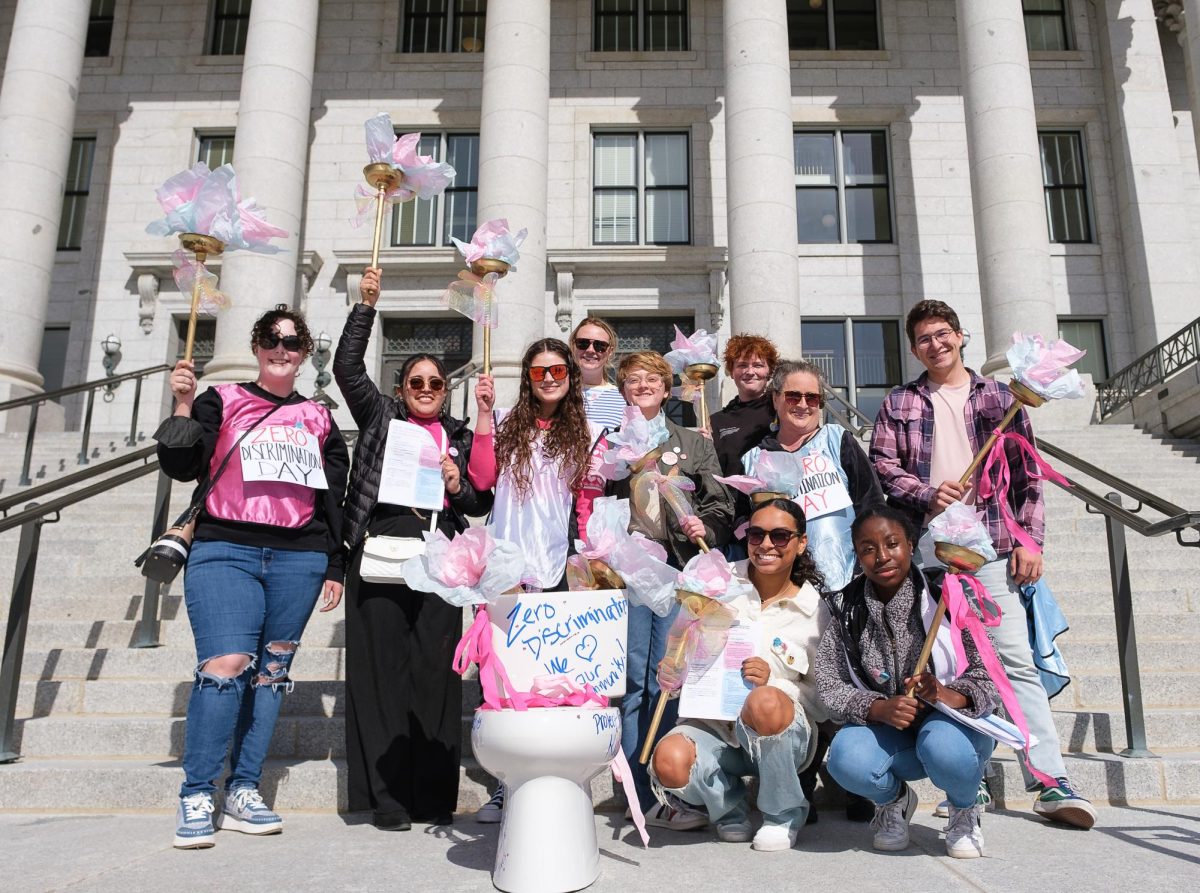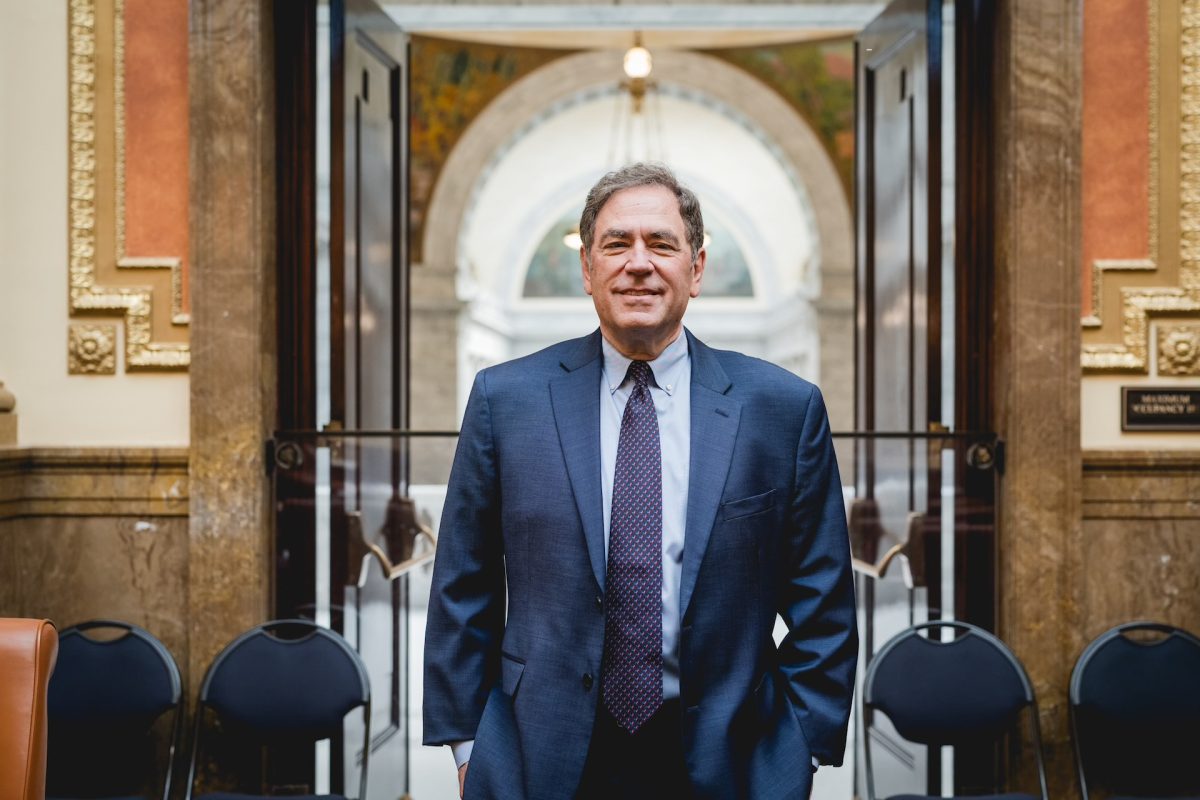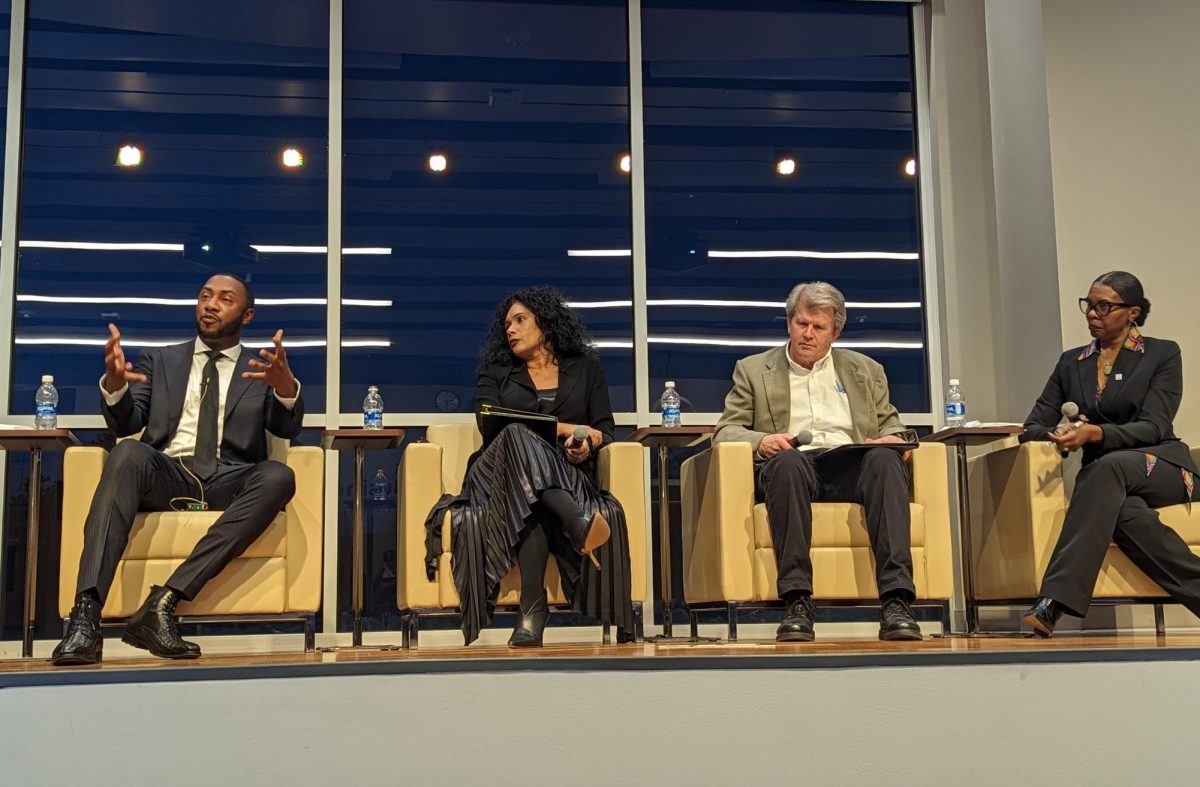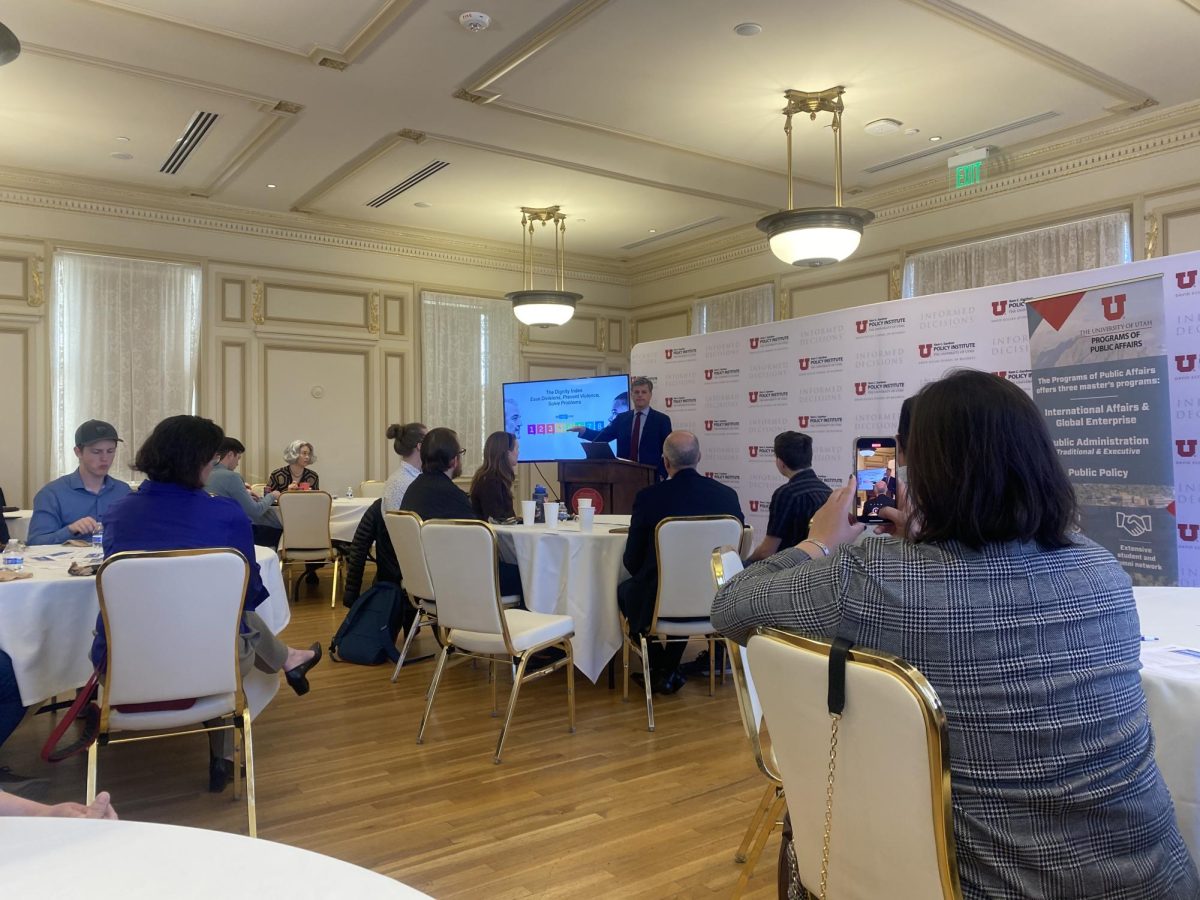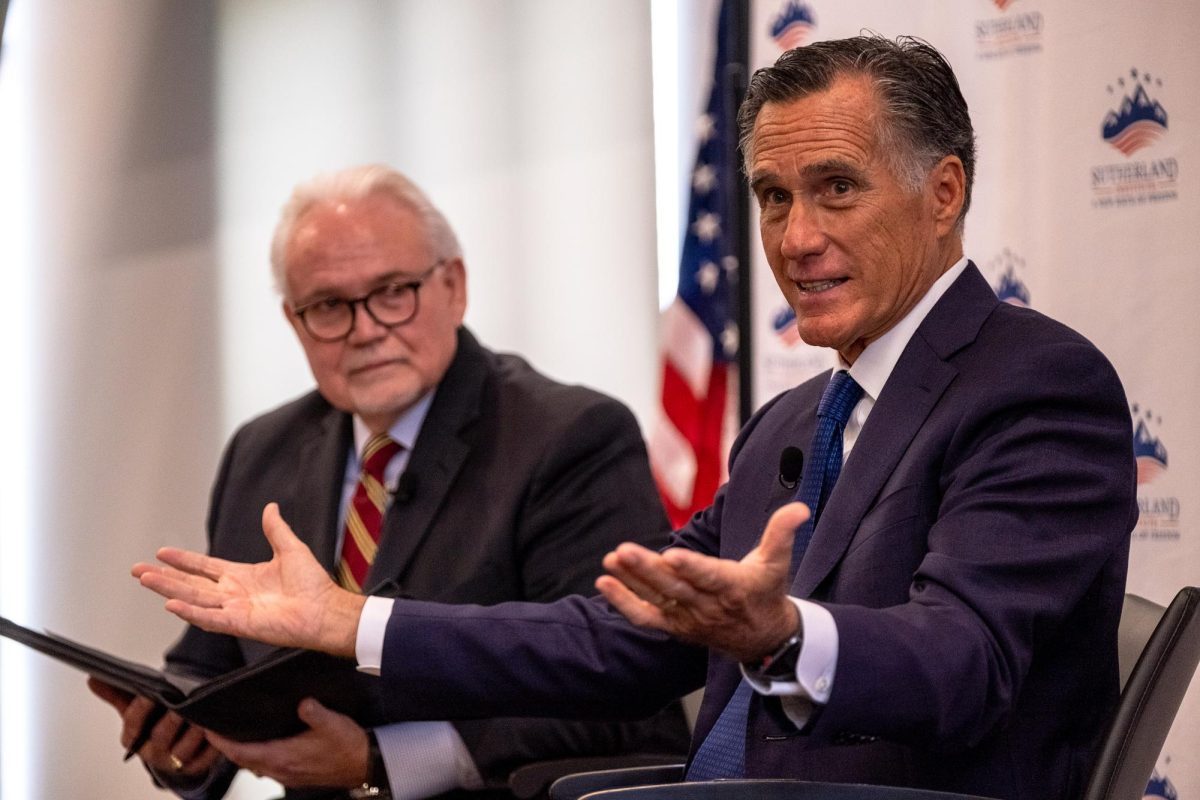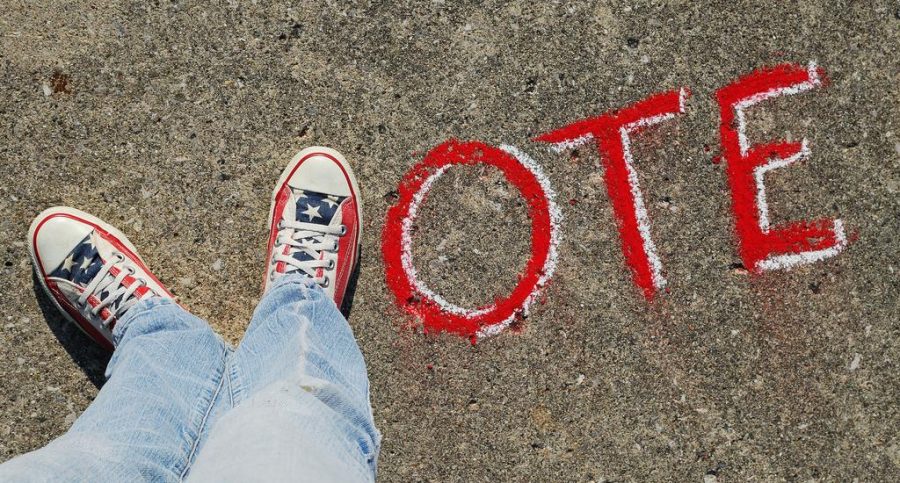[row cols_nr=”2″]
[col size=”8″]
Lyndon Johnson called the secret vote “The most powerful instrument ever devised by man.” Franklin Delano Roosevelt said that the only way to deprive the American people of the right to vote was by Americans choosing not to vote.
Out of 200 million eligible voters in the United States, the number that exercises their constitutional right is far lower. One in four eligible citizens are not on the voter rolls, according to a 2012 Pew study.
Additionally, the United States ranks low on the list of voter turnout among nations, with rates lower than Slovakia, Estonia and Slovenia. The U.S. voter turnout rate has lingered around 48 and 57 percent, while countries like Belgium boast 87 percent turnout.
So, why do so many citizens, especially college-aged students—who turned out at 41 percent in 2012—refrain from voting?
Misinformation often deters eligible voters when it comes to casting their ballot, as well as voter myths and inconvenience, Matthew Burbank, professor of Political Science said.
A Washington Post-ABC News poll found that roughly half of American Voters think that voter fraud occurs “somewhat” or “very” often. A comprehensive study, however, shows that voter fraud, such as multiple votes per person, or using fake names to vote, virtually never happens.
Edmond Fong, Political Science professor, said that voter fraud myths are designed to suppress voting among under-represented groups like the youth vote, African Americans and poor white voters—all of which tend to lean democratic.
“Allegations and myths of voter fraud have a deep and unsavory history in this country,” Fong said.
Fong explained that although fraud may deter minority voters from casting their ballot, it is more likely that voters may be convinced that a final presidential decision is corrupt. He noted Donald Trump’s claim last month, “The only way we can lose, in my opinion, I really mean this, Pennsylvania, is if cheating goes on.”
As students prepare to penetrate the ‘real world’—a place where economic and public policy may affect their lives, Fong says speaking up is important. Voicing opinions on issues, policies, candidates and referendums could have a direct impact on many students’ futures—from student loans to education, career and finances.
Professor of Political Science, James Curry, also had advice for students: “Don’t get distracted by personal attacks made against any candidate – most of those things are misleading and distract from what is important.”
Curry said to “follow your heart” but also seriously consider the political reality of a candidate’s prospects for victory in November.
Additionally, voters must recognize not what the candidates say they will do, but whether they can actually do it.
“If you don’t like the status quo, the simplest thing you can do is show up and vote for anyone,” Curry said. “Otherwise you should expect those who participate to have a larger voice than yours.”
Benjamin Bartholomew, Political Science major, has a plethora of reasons why he will vote this November—one of them being to respect those who have died fighting for his right to vote.
“Anyone who simply chooses not to vote because they feel it’s an inconvenience is showing a great deal of disrespect,” Bartholomew said.
Further, Bartholomew stressed that this election will have an explicit influence on students, as the 2016 president will lead many soon-to-be graduates into their first four years of adulthood.
Bartholomew, said —“Decide for yourself the things that matter most to you” and show up and vote.
[/col]
[col size=”4″]
GET REGISTERED
Election day is Nov. 8. But, in Utah, citizens are not allowed to register to vote that day. Here’s a rundown of what you need to know about getting registered in Utah.
Documents you need to register: To register online or in person in Utah, you need a driver’s license or another official form of identification from the state, as well as a valid house address.
Documents you need to vote: A government issued ID, U.S. passport, Utah permit to carry a concealed weapon or tribal ID card. If you don’t have one of these, you can provide two of the following: college ID, birth certificate, Social Security card, Utah hunting or fishing license, Utah vehicle registration, a utility bill or copy of a utility bill dated on or after Aug.10 and a bank statement.
The “mail” dates refer to the day by which an application must be postmarked.
Q & A
Do I need to re-register if I move?
Yes, you must re-register or update your address if you have moved to a new county or state. Go to secure.utah.gov/voterreg to re-register.
Does the address on my license have to match my current address?
In order to register online, yes, your driver’s license address must match your current address. You can go to secure.utah.gov/dlr to change the address associated with your license.
Can I register to vote online?
Yes, you can go to secure.utah.gov/voterreg to register to vote.
How long must you live in a state to be able to register to vote there?
Thirty days. If you don’t have a Utah issued ID, bring a bank statement, utility bill or college ID to prove residence.
[/col]
[/row]
Photo courtesy of Theresa Thompson







